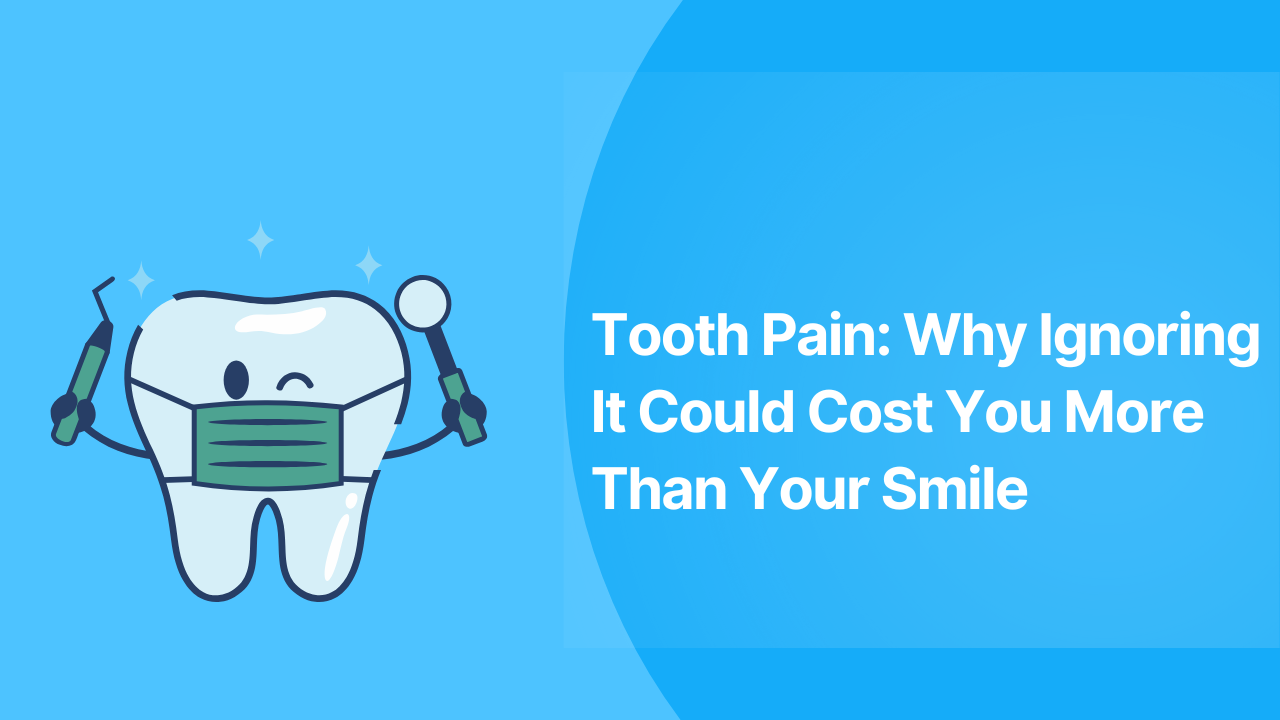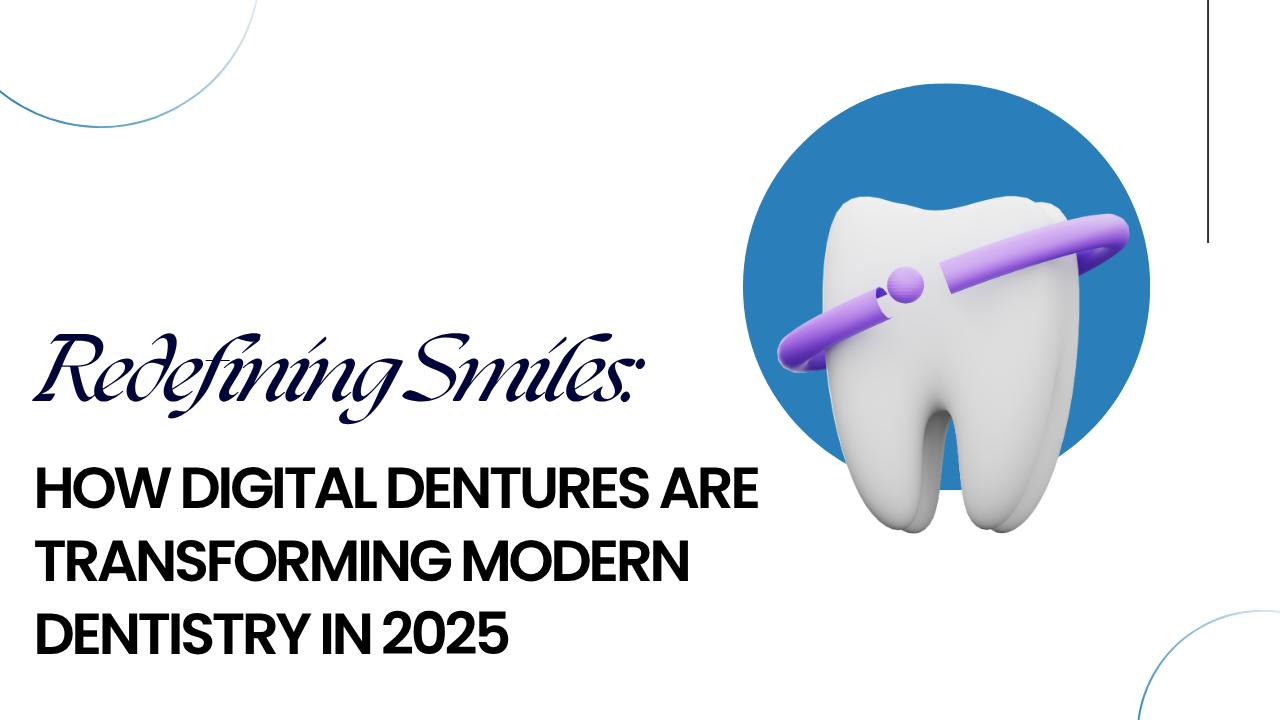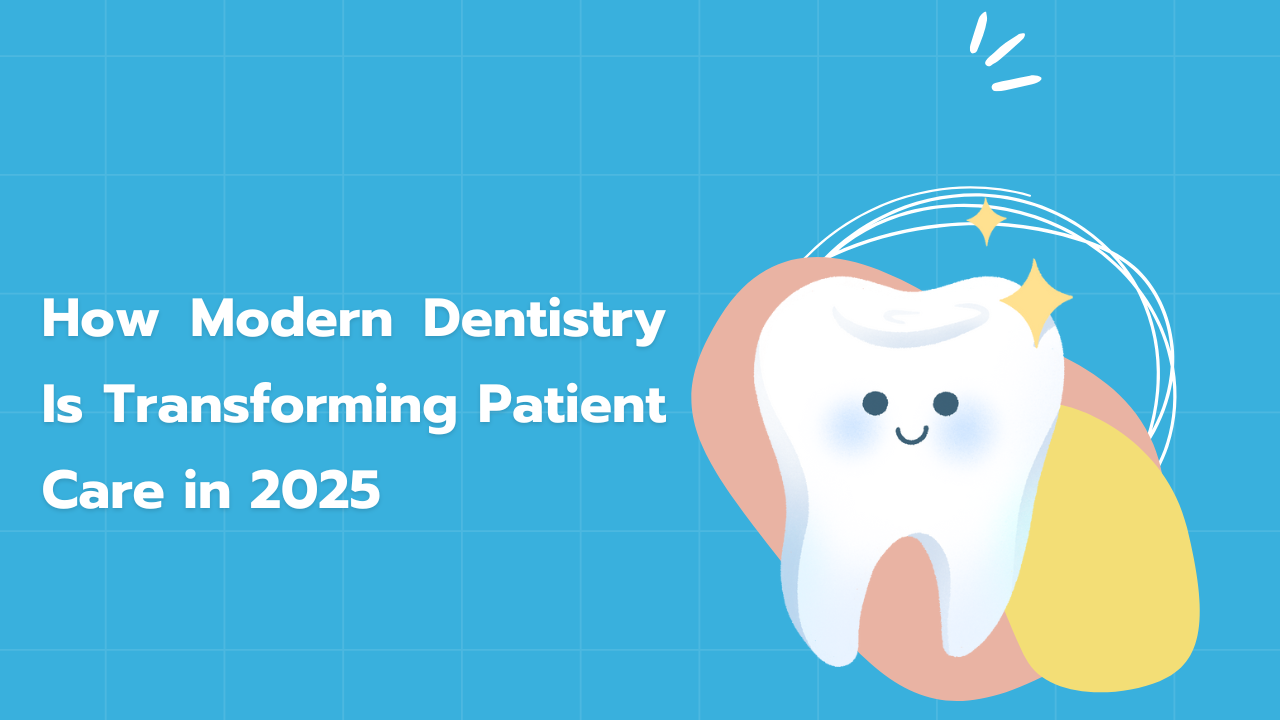We’ve all experienced it—feeling a slight ache in a tooth and convincing ourselves it’s “nothing serious.” Maybe you attribute it to biting something too cold or assume it will disappear in a few days. But the uncomfortable reality is that tooth pain doesn’t just appear out of nowhere, nor does it truly go away without a cause.
Ignoring it might help you avoid a dental visit today, but it could cost you much more tomorrow—in pain, expenses, and even your overall health. Let’s explore why tooth pain should never be ignored and how promptly visiting the best dental clinic near you can safeguard not only your teeth but also your overall health.
Tooth Pain: Your Body’s Natural Warning System
Tooth pain is more than a nuisance—it’s your body’s way of signaling that something is wrong. Think of it as your mouth’s emergency alert. That dull ache, sudden sharp pain, or ongoing throbbing is your body’s way of saying, “Please address this before it worsens.”
Pain can result from various causes, including:
- Cavities from tooth decay
- Gum disease (gingivitis or periodontitis)
- Cracked or broken teeth
- Infections or abscesses
- Impacted wisdom teeth
- Worn enamel or teeth grinding
In all these situations, the issue won’t resolve on its own—it will only get worse.
What Happens When You Ignore Tooth Pain
If tooth pain goes untreated, it usually progresses as follows:
Stage 1: Mild Discomfort
Initially, you might only feel pain when chewing or eating hot, cold, or sweet foods. This could indicate a developing cavity or early gum inflammation. Treatment at this stage is often straightforward and affordable, such as a small filling or basic cleaning.
Stage 2: Ongoing Pain and Sensitivity
After weeks or months, the pain may become more pronounced. You might avoid chewing on one side or feel discomfort even without eating. The decay may have reached deeper into the tooth, or gum disease might be affecting the supporting bone.
Stage 3: Intense Pain and Infection
If the tooth’s pulp (the innermost part containing nerves and blood vessels) becomes infected, the pain can be severe. You may notice swelling, redness, or pus near the tooth. At this point, more advanced treatments like root canal therapy—or in severe cases, extraction—are needed.
Stage 4: Health Risks Beyond the Mouth
Dental infections can spread through the bloodstream to other parts of the body, potentially causing serious complications. Research has linked untreated oral infections to heart disease, diabetes complications, and respiratory problems.
The Issue With Masking Pain
Many people rely on painkillers to “manage” a toothache. While medication can reduce discomfort, it doesn’t fix the underlying problem. This only delays addressing the issue, allowing it to worsen silently over time.
When tooth pain returns—often more intense than before—you might face more invasive, costly, and time-consuming treatment options.
Why Tooth Pain Is More Serious Today
You may wonder, “People have ignored toothaches for ages—why is it more concerning now?” The answer lies in modern habits:
- High-sugar diets: Processed snacks, sodas, and sweets are more readily available, raising cavity risks.
- Busy lifestyles: Many postpone dental visits due to lack of time, allowing issues to worsen.
- Stress and teeth grinding: Bruxism is increasingly common among adults, leading to fractures and enamel damage.
- Mask-wearing habits: Since the pandemic, many have skipped routine checkups, so dental problems often go unnoticed until painful.
The Hidden Consequences of Delaying Treatment
Delaying care can cost you both financially and physically:
- Filling a simple cavity now: affordable and quick.
- Root canal plus crown in six months: expensive, time-consuming, and requires multiple visits.
- Tooth extraction and implant within a year: costly, surgical, and involves healing time.
- Beyond dental expenses, untreated infections may cause:
- Extended work absences
- Persistent discomfort affecting eating and sleeping
- Long-term damage to the jawbone or facial structure
Prevention: The Best Way to Avoid Dental Emergencies
The key to avoiding serious tooth pain is to prevent problems from reaching a critical point. Prevention is more effective and less stressful than treatment.
1. Regular dental visits every six months for early problem detection.
2. Strong daily oral care: brush twice daily, floss, and use antibacterial mouthwash.
3. Healthy diet: limit sugary snacks and acidic drinks that harm enamel and promote bacteria.
4. Promptly address minor discomfort by scheduling a dental appointment immediately.
When to Seek Immediate Dental Care
Certain symptoms require urgent attention—don’t delay if you experience:
- Severe or ongoing toothache
- Swelling in gums, face, or jaw
- Fever or feeling unwell with tooth pain
- Gum bleeding without obvious injury
- Pus around teeth or gums
If any of these occur, find a reputable dental clinic nearby and book an appointment right away.
Choosing the Right Dental Clinic
When in pain, you want reliable care. The ideal dental clinic should provide:
- Experienced dentists skilled in preventive and restorative treatments
- Advanced diagnostic tools like digital X-rays and 3D imaging
- A comfortable, patient-centered environment
- Clear treatment plans and transparent pricing
Why Dr. Varun’s Smile World Is a Trusted Choice
If you’re looking for the best dental clinic near you in Kerala, consider Dr. Varun’s Smile World. Renowned for its patient-first approach, cutting-edge technology, and expert dental team, the clinic provides comprehensive care, ranging from routine check-ups to complex restorative procedures.
Their approach is straightforward—identify issues early, address them with care, and teach patients how to maintain their oral health for life. Whether you’re experiencing tooth pain, seeking a cosmetic smile transformation, or require regular dental care, Dr. Varun’s Smile World provides a comfortable experience with outstanding outcomes. Your health shouldn’t wait. Schedule your appointment now and begin your journey to a pain-free, confident smile




